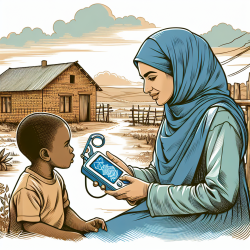Introduction
In the rapidly evolving landscape of healthcare, mobile health (mHealth) applications are proving to be transformative. These applications offer platforms for disease management, drug adherence, diagnosis acceleration, outbreak monitoring, and more. However, despite the potential, mHealth adoption by healthcare workers in developing countries remains limited. A recent scoping review, "Healthcare Workers’ Perspectives of mHealth Adoption Factors in the Developing World," sheds light on the barriers and enablers of mHealth adoption, offering a framework to enhance its implementation.
Key Findings
The study reviewed 85 papers and identified seven primary categories impacting mHealth adoption:
- Engagement and Funding: Multi-sectoral engagement and stable funding are crucial. Projects require collaboration among stakeholders and alignment with national health policies.
- Infrastructure: Reliable network technology and electricity are foundational. Infrastructure failures can severely impact mHealth adoption.
- Training and Technical Support: Proper training and ongoing technical support are essential for effective mHealth use. Training should be tailored to the local context and include continuous education.
- System Utility: The usefulness and flexibility of the system, including privacy and socio-cultural considerations, affect adoption. User-friendly design and involvement in the design process are vital.
- Motivation and Staffing: Adequate staffing and motivation through incentives can encourage adoption. Overburdening healthcare workers should be avoided.
- Healthcare Worker’s Mobile Phone—Cost and Ownership: Ownership and affordability of mobile devices are prerequisites for mHealth deployment.
- Patient’s Mobile Phone—Cost and Ownership: Patient access to mobile phones influences healthcare workers' adoption of mHealth, especially for teleconsultations.
Implications for Practice
For practitioners looking to improve their skills and embrace mHealth, understanding these factors is crucial. Here are some actionable steps:
- Engage with stakeholders at all levels to ensure alignment and support for mHealth initiatives.
- Advocate for infrastructure improvements to ensure reliable connectivity and power supply.
- Participate in and promote training programs that enhance mHealth competencies.
- Collaborate with developers to ensure mHealth solutions are user-centered and culturally appropriate.
- Encourage policies that support device ownership and affordability for both healthcare workers and patients.
Conclusion
The adoption of mHealth in developing countries is a complex process influenced by various factors. By addressing these factors through the proposed framework, healthcare workers can enhance mHealth implementation, ultimately improving healthcare delivery and outcomes. Practitioners are encouraged to delve deeper into the research to further understand and address these challenges.
To read the original research paper, please follow this link: Healthcare Workers’ Perspectives of mHealth Adoption Factors in the Developing World: Scoping Review.










